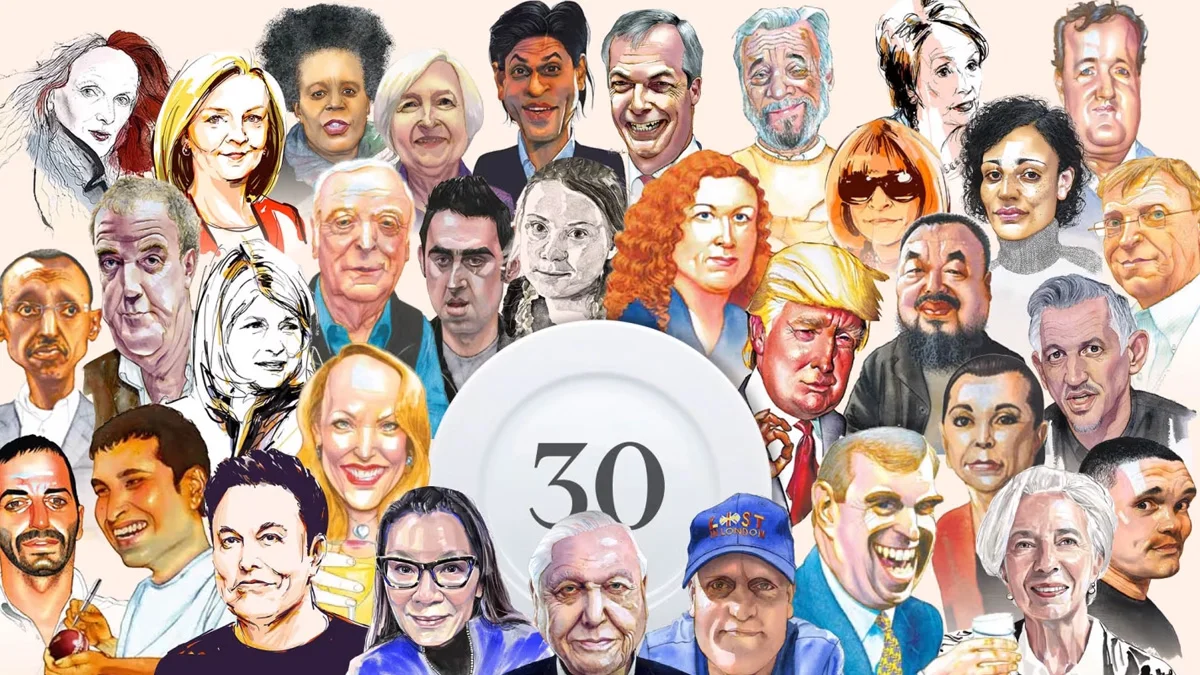
This article is an online version of our Off to Lunch newsletter. Sign up to receive it straight to your inbox here.
Business Thinker
Deep dives on business and leadership
?? What Taylor Swift and Oasis can teach us about the economy
As Taylor Swift’s Eras tour and the upcoming Oasis reunion tour dominate headlines, their contrasting economic impacts reveal shifting dynamics in the music industry. Andy Haldane, the former chief economist at the Bank of England, explores how these tours reflect broader trends in the global economy including inequality, sentiment-driven spending and the power of narrative economics.
?? Why loyalty programmes fail
Successful loyalty programmes prompt desirable customer behaviours, keep people engaged and generate a high ROI. Underperforming programmes suffer from issues such as poor economics, lack of customer insights and low engagement. Six techniques can help retool an underperforming programme, including drawing an accurate profile of customers, devising a compelling hook, building community and partnering with others.
?? Why companies should consolidate tech roles in the C-Suite
Recently, some organisations have begun to recognise the downside of C-level proliferation and decided to consolidate senior technology and data roles. These individuals – referred to as “SuperTech” leaders – are most likely to be known as chief information officers, but they also have broad responsibility for data and technology functions, and many also have operational responsibilities within the business. Leaders of speciality tech and data functions (data, analytics, AI, cybersecurity) report to them. Establishing SuperTech leadership roles will bring clarity and accountability to organisations’ digital transformation initiatives.
Business Agenda
A summary of the most important business news
1. The asking price for new houses being put up for sale has risen by 0.8 per cent month on month, according to a new survey by Rightmove. This survey is the latest data to indicate that activity in the housing market is picking up. More here.
2. Plans to scrap inheritance tax relief on companies listed on Aim could slow the progress of fast-growing businesses, according to a story in The Times here.
3. A group of economists has warned the Labour government that the “foundations of the economy” could be hit by plans to cut public investment. Financial Times story here.
4. From the weekend papers, an interesting look inside the success of clothing retailer TK Maxx by The Sunday Times. “TJX, the American giant behind TK Maxx, has exploited gaping inefficiencies in the fashion industry’s buying operations to build one of the world’s most successful retailers,” it says. You can read the piece here.
5. Lastly, check out this interview with Ted Sarandos, the co-chief executive of Netflix. “You are trading off constantly, all the time. So, this mission to find the perfect work-life balance, I think, is a fool’s errand,” he told The Sunday Times. You can read more here.
Business Question
According to analysis from BANC, Google searches for "sustainable brands" have risen by what percentage between 2013 and 2023?
A. 588 per cent
B. 846 per cent
C. 1,010 per cent
D. 1,469 per cent
The answer can be found at the bottom of the page.
Business Quote
Inspiration from leaders
“When you start to improve yourself, loneliness is the price you pay.”
– Anonymous
Business Leader
The best of our content

Distilling success – A lesson from America
By Dougal Shaw
In the latest instalment of our video series, My CEO Secret, we talk to Fawn Weaver, who since 2017 has been building a global whiskey brand from Tennessee in the US, called Uncle Nearest.
You can see the video here ??
Other popular pieces
?? Elite sport shows us how to reach the top and stay there
?? The purpose paradigm: Fact or fiction?
And finally...

This weekend marked 30 years of the Financial Times’s Lunch with the FT interview series. Over the years it has featured everyone from Sir David Attenborough to Elon Musk, Anna Wintour to Jerry Hall.
To commemorate this, the publication’s chief features writer, Henry Mance, has explored its success. As he says: “When the great and the good eat, they have to become human. No one can maintain a façade when fixated on a French fry.”
He has picked out the six types of people journalists meet doing this piece.
- The stars: people who are automatically interesting just because they are a household name
- The politicians: more used to talking and eating than most.
- The thinkers: who have usually written a book and now want to sell it.
- The executives: unlike stardom, corporate power does not make you interesting.
- The mavericks: unashamed about enjoying good food but lacking a level of self-awareness.
- The humble achiever: whose very normality is their selling point.
As for what else makes a good lunch? Alcohol, sometimes. Lavishness, more often than not. But mostly it’s time.
You can read Mance’s full piece here and the first Lunch with the FT with Marco Pierre White here.
The answer to today's Business Question is D. 1,469 per cent.
Related and recommended
Contestants from The Apprentice reveal the fundamental business lessons they learned from taking part in the TV show
From global talent pools to AI-powered documentation, a work-from-anywhere model is a new way of thinking about productivity, innovation and teamwork
The story of how cycling brought Business Leader member John Readman together with his co-founder and investors
Stuart Machin’s hands-on leadership has revived M&S, tripling its share price and reshaping its future, by obsessing over the details, from shop floors to staff message boards





